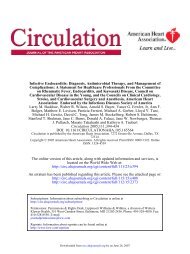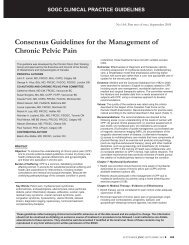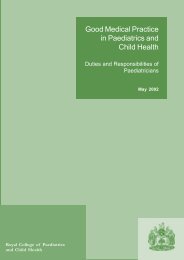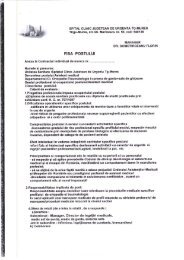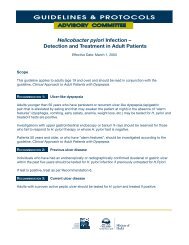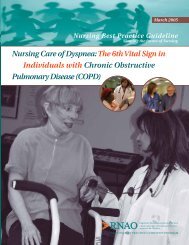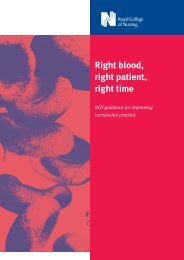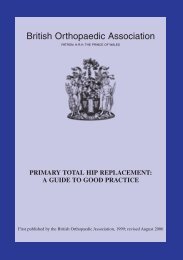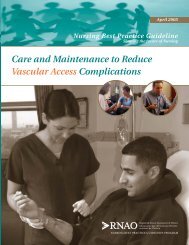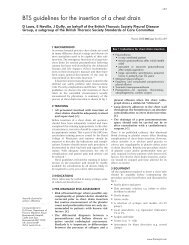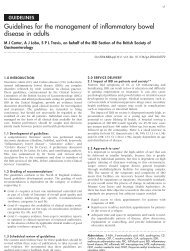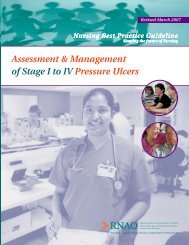Screening for Delirium, Dementia and Depression in Older Adults
Screening for Delirium, Dementia and Depression in Older Adults
Screening for Delirium, Dementia and Depression in Older Adults
- No tags were found...
You also want an ePaper? Increase the reach of your titles
YUMPU automatically turns print PDFs into web optimized ePapers that Google loves.
Nurs<strong>in</strong>g Best Practice Guidel<strong>in</strong>eAltered level of consciousness4. Overall, how would you rate this client’s level of consciousness?❏ Alert (normal)❏ Vigilant (hyperalert, overly sensitive to environmental stimuli, startled very easily)❏ Lethargic (drowsy, easily aroused)❏ Stupor (difficult to arouse)❏ Coma (unarousable)❏ Uncerta<strong>in</strong>Disorientation5. Was the client disoriented at any time dur<strong>in</strong>g the <strong>in</strong>terview, such as th<strong>in</strong>k<strong>in</strong>g that heor she was somewhere other than the hospital, us<strong>in</strong>g the wrong bed, or misjudg<strong>in</strong>gthe time of day?73Memory impairment6. Did the client demonstrate any memory problems dur<strong>in</strong>g the <strong>in</strong>terview, such as<strong>in</strong>ability to remember events <strong>in</strong> the hospital or difficulty remember<strong>in</strong>g <strong>in</strong>structions?Perceptual disturbances7. Did the client have any evidence of perceptual disturbances, <strong>for</strong> example,halluc<strong>in</strong>ations, illusions, or mis<strong>in</strong>terpretations (such as th<strong>in</strong>k<strong>in</strong>g someth<strong>in</strong>g wasmov<strong>in</strong>g when it was not)?Psychomotor agitation8. Part 1At any time dur<strong>in</strong>g the <strong>in</strong>terview, did the client have an unusually <strong>in</strong>creased level ofmotor activity, such as restlessness, pick<strong>in</strong>g at bedclothes, tapp<strong>in</strong>g f<strong>in</strong>gers, or mak<strong>in</strong>gfrequent sudden changes <strong>in</strong> position?Psychomotor retardation8. Part 2At any time dur<strong>in</strong>g the <strong>in</strong>terview, did the client have an unusually decreasedlevel of motor activity, such as sluggishness, star<strong>in</strong>g <strong>in</strong>to space, stay<strong>in</strong>g <strong>in</strong> oneposition <strong>for</strong> a long time, or mov<strong>in</strong>g very slowly?



